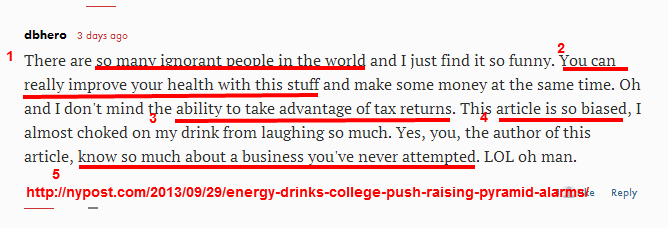 |
| Image via CrunchBase |
Crack Down on Shill Reviews
Yelp recently sued a lawfirm for posting fake reviews of itself. There are extenuating circumstances that the lawfirm had previously sued Yelp for not delivering on its promise, so read the whole story with a pinch of salt.
New York Attorney General sued 19 different firms for posting fake reviews... By going as far as creating a fictitious business and going to "reputation management" firms who flood the net with fake positive reviews. The fake reviews are typically written by Filipinos and Bangladeshis and other cheap online labor. Often, the flood of positive reviews drown out negative reviews. Those are typically paid about $1 a review, while the reputation management firm charges hundreds, even thousands of dollars for the "management" of such.
Gartner Media predicted that 10-15% of all online reviews will be fake reviews by 2014. There are statistics that suggest review sites like AngiesList, Yelp, and so on can contain as much as 25% fake reviews.
But what about MLM reviews and ads and comments?
MLM Claims Go Unchecked and Potentially Fraudulent
Previously MLM Skeptic have identified several so-called "MLM review" sites that not only did no review, it outright called scams as "not scams". MLM Skeptic also identified MLM "coaches" that offer to train you in proven scams, as well as companies with dubious offers, then websites proclaiming their offers were not dubious in obvious fake review sites.
What MLMers can and cannot say in support of their business? FTC actually has guidelines on that. I'll let "The MLM Attorney" Kevin Thompson explain it to you:
http://thompsonburton.com/mlmattorney/2013/05/22/ftcs-disclosure-guidelines-for-online-marketing-how-to-get-it-right-part-1/
http://thompsonburton.com/mlmattorney/2013/06/18/ftcs-disclosure-guidelines-for-online-marketing-how-to-get-it-right-part-2/
Basically speaking, VAST MAJORITY of people advertising online are doing it wrong
If you make a claim online like "I earned 4500 in a month and you can too!" and you wave a check, FTC want to see a note at end of paragraph (close proximity, same size of font), where you state "average monthly income is $500, see link for detail". You see any one linking to their disclaimer? I don't!
If you make a claim like "I lost 30 pounds in 30 days taking _____", FTC wants to see what the AVERAGE user lost, PLUS disclaimer that "results not typical".
Furthermore, if you made a claim in video (like all those Youtube videos), your DISCLAIMER MUST ALSO IN VIDEO! Linking to website for disclaimer is NOT ENOUGH according to the FTC.
What if you were using Twitter, which is limited to 140 characters? FTC says: if you can fit in the disclaimer, yes. Else, don't use Twitter.
This is advice from a LAWYER, folks "THE MLM ATTORNEY" Kevin Thompson, who's PRO-MLM.
And in my experience, VAST MAJORITY of people don't follow these guidelines. Here's one:
That is NOT an officially approved Vemma statement. Vemma's official policy on this is "No claims as to the therapeutic, safety or curative properties of the products, or regarding the products, may be made except those officially approved by Vemma or as contained in the official Vemma literature."
What Vemma actually stated is "100% of group who drank Vemma (the shake) self-reported improvement of their health". And this was Vemma shake, NOT Verve energy drink. I have not seen any clinical studies regarding Verve, even from Vemma themselves.
Thus, it's pretty clear that the guy made a statement that apparently violated BOTH FTC and Vemma standards, doesn't it?
If you make statements online for a company, you better be VERY clear on what you can or cannot say and how you should say it. And ignorance is not an excuse.








No comments:
Post a Comment